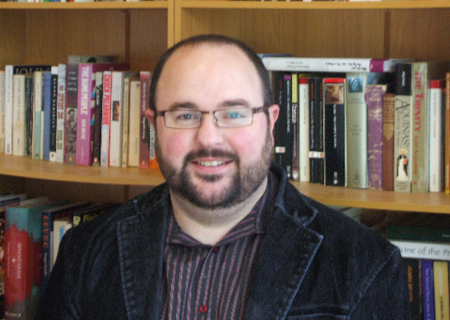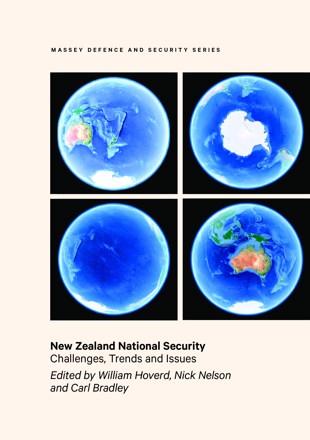1. Now that it’s published, what pleases you most about National Security: Challenges, Trends and Issues?
We really like the cover. We tried to use New Zealand images to show different visions of New Zealand in the world. Look how big our EEZ is towards the south and east. From another angle, look how close we are to Asia-Pacific! The cover helps the reader understand the regional settings in which the security discussions of the book are located.
2. Why should it be read?
There is nothing like this on the market right now. It is unique and is the right book at the right time. We are entering a period of global uncertainty where New Zealand’s traditional partners are looking inwards and simultaneously emerging state powers and non-state actors are flexing their muscles. The book is a reflection of current thinking about security in the New Zealand context which draws together thinking about who we are and how we construct a safe society.
3. What are the strengths of its contributing writers?
The contributors are a mix of scholarly practitioners and academics who teach in the security sector. The closeness of the contributors to the sector combined with their independent voice results in an urgent collection of thinking about New Zealand’s security.
4. What’s one new thing you learnt while editing the book?
For me, the really new contribution to knowledge that emerges from the book comes from Howard Broad. Getting inside the mind of New Zealand’s most senior security official, seeing how he thinks, what he deems important and what keeps him awake at night was enlightening and it will shape the way I think about whole-of-government approaches to national security.
5. The security field is becoming increasingly complex. Is it also becoming increasingly stimulating to be researching in?
What is interesting about national security is that it is constructed in a field constituted by policy-makers, security practitioners and our historical context, all of whom are reacting to fears about ‘what might exist out there in the world to threaten New Zealand’s interests’. National security is not something that exists independently in the world. It is something that needs to be practised, invented, deconstructed and evaluated. The scope for scholarship in this field is huge.
6. Is the general public naïve about the security issues that face New Zealand?
In general, New Zealanders seem to be fairly prosaic about national security. In the main, they trust that the government makes the best decisions for the people. This trust functions until it gets broken. Fortunately, we have not had any major security incidents here, but we can see how much work the government has had to do to repair the break in trust with our intelligence agencies that emerged post Kim Dotcom and Snowden.
7. We can no longer rely on being a small nation at ‘the bottom of the world’ to insulate us, can we?
That’s what Howard Broad is telling us. That’s what the security sector is suggesting. What do New Zealanders actually think? Do they feel any less safe? We don’t know . . .
8. Why can we as citizens not afford to leave this to politicians, civil servants and the defence sector? Why must we inform ourselves and engage with the issues?
We live in a democracy. It’s healthy to have tension and discourse between the different voices in society. It’s important that we understand the risk appetite of various sectors of our nation. A whole-of-society conversation about national security would start a conversation where we can start to ask questions about what are the reasonable steps necessary to ensure the safety of New Zealanders. Security arises sometimes at the cost of individual freedom. What is the right balance? Do we understand why certain choices are being made? What are acceptable and unacceptable risks? What should accountability look like in this field? If New Zealanders inform themselves and engage in the big questions of national security, then we can start to get an idea of what the really pertinent issues might be across all sectors of our society.
9. Editing such a comprehensive book: stress or pleasure?
Both. So many small pleasures. So many minor stresses. We are very pleased to have it in print!
10. What are you reading at the moment?
For work, I have just read Karin Fierke’s 2015 Critical Approaches to Security Studies. Fierke urges us to think about security as a cluster of relationships and offers scholars’ pathways to emancipatory approaches to security. At home, I just read Ernest Cline’s 2012 Ready Player One, a fanboy sci-fi exploration of a virtual future world inspired by obscure nerd icons of the 1980s.


